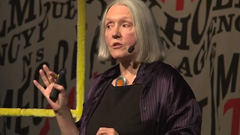Saskia Sassen
Renowned sociologist Dr. Saskia Sassen challenged conventional wisdom about the death of urban centers through her critical observations on the economic degradation of the world’s cities in the late 1980s and early 1990s. Sassen’s research has since been translated into over 20 languages, both establishing and advancing a common understanding of new developments in global politics, economics, and immigration. In The Global City: New York, London, and Tokyo (1991), Sassen coined the term global city to describe the network of connections that would support these cities’ resurgence on an international scale. Her project Territory, Authority, Rights: From Medieval to Global Assemblages (2006) argued that although globalization is traditionally considered a “denationalizing” process, it continues to be shaped by national structures such as government firms, legal systems, and citizens. Winning multiple awards, this project further cemented Sassen’s position as a global thought leader. Her most recent book, Expulsions: Brutality and Complexity in the Global Environment (2014), describes an interconnected rise in the global phenomena of income inequality, unemployment, displaced populations, and accelerated environmental destruction. Sassen is currently the Robert S. Lynd Professor of Sociology and chairs the Committee on Global Thought at Columbia University. She holds the 2013 Principe de Asturias Prize for the Social Sciences and is a member of the Council on Foreign Relations and National Academy of Sciences Panel on Cities. Sassen has written for The Guardian, The New York Times, Le Monde Diplomatique, the International Herald Tribune, Newsweek International, Vanguardia, Clarin, and the Financial Times.

